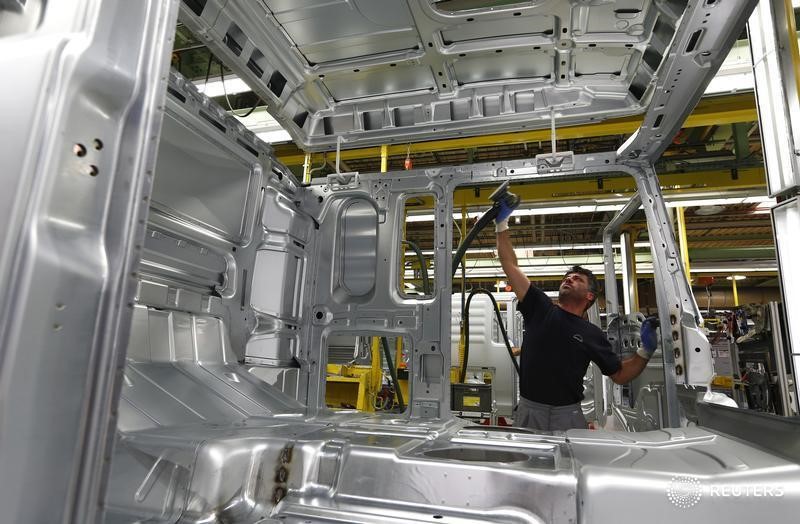By Michael Nienaber
BERLIN (Reuters) - German business morale rose in November to the highest level since summer 2014, shrugging off an economic slowdown in China, the Volkswagen (DE:VOWG_p) emissions scandal and the Islamist attacks in Paris.
The unexpectedly strong business climate reading by the Ifo economic institute came after data showed that rising private consumption and higher state spending on refugees more than compensated for weakness in foreign trade in the third quarter.
"The German economy remains unaffected by growing uncertainty worldwide. Not even the Paris attacks had a negative impact on survey data," the Munich-based Ifo institute said.
Data from the Federal Statistics Office earlier showed that strong domestic demand helped the economy to grow at a modest, albeit slower, pace of 0.3 percent between July and September.
Ifo's business climate index, based on a monthly survey of some 7,000 firms, jumped to 109.0 from 108.2 in October. It was the strongest reading since June 2014 and beat the Reuters consensus forecast for a steady reading.
A separate index measuring corporate expectations over a half-year horizon rose to 104.7, suggesting many firms believe they can cope with the economic headwinds.
"Neither the VW emissions scandal, nor the refugee crisis, nor the attacks in Paris are scratching the mood of German companies," DekaBank economist Andreas Scheuerle said, adding that German business morale was like a "teflon-coated pan".
A sub-index for the automotive sector continued to rise despite the VW emissions scandal.
"The German economy appears unaffected because the euro zone and United States are performing well," Ifo economist Klaus Wohlrabe told Reuters.
Nordea Bank economist Holger Sandte said strong demand from the United States and Britain helped German exporters compensate for weaker sales to emerging markets.
"German growth remains robust, the recovery continues," Sandte said.
U.S. BOON
Exports to the United States and Britain surged in the first three quarters of this year, helping companies to offset waning demand from China and Russia.
Fitting into this picture, the VDMA engineering association said on Monday the United States displaced China as Germany's top export market for machinery in the first nine months.
Record-high employment, rising wages and nearly stable prices are boosting household spending in Germany while cheaper gasoline is freeing up some cash for other purchases.
At the same time, the federal government and states are spending tens of billions of euros on housing a record number of refugees as well as on integrating them and finding them jobs.
Finance Minister Wolfgang Schaeuble told lawmakers that he was still aiming for a balanced budget next year despite the ballooning refugee costs.
But he also reiterated that coping with the record numbers of refugees was the government's top priority now.
The government expects strong private consumption and higher state spending on refugees to drive economic growth of 1.7 percent this year and 1.8 percent next.
The statistics office did not publish a sector breakdown in its GDP statement from which conclusions could be drawn on where the increased state spending on refugees is going.

But an official at the Federal Statistics Office said the government had to rent or build accommodation for the new arrivals and buy goods such as clothing and food.